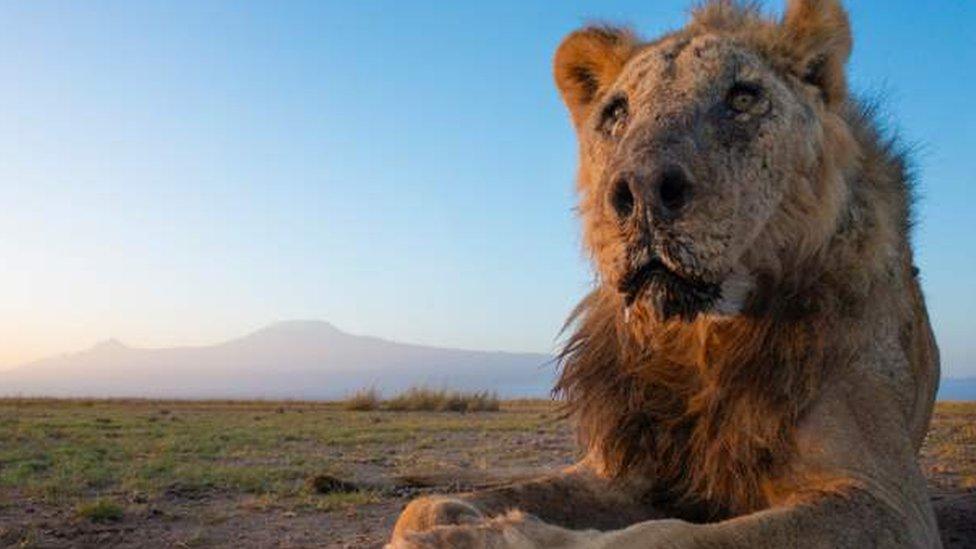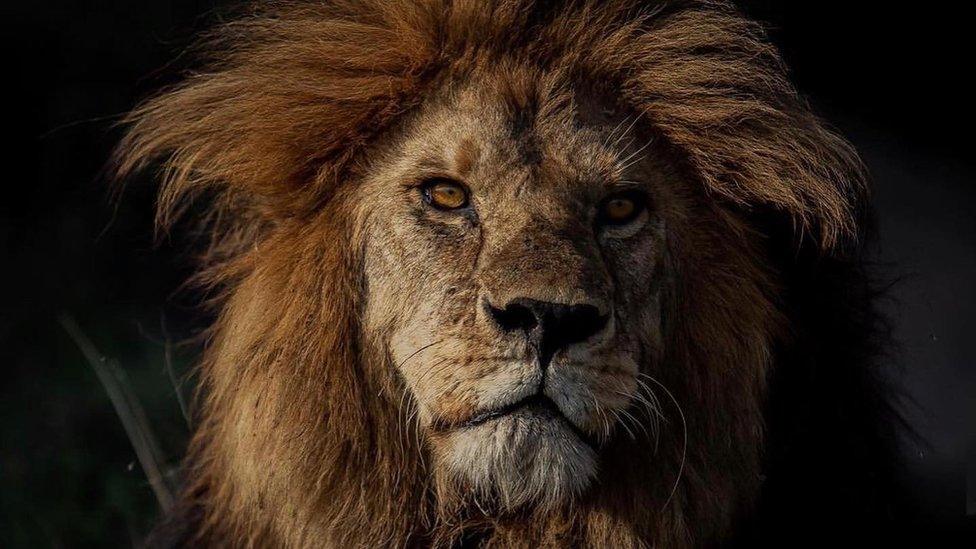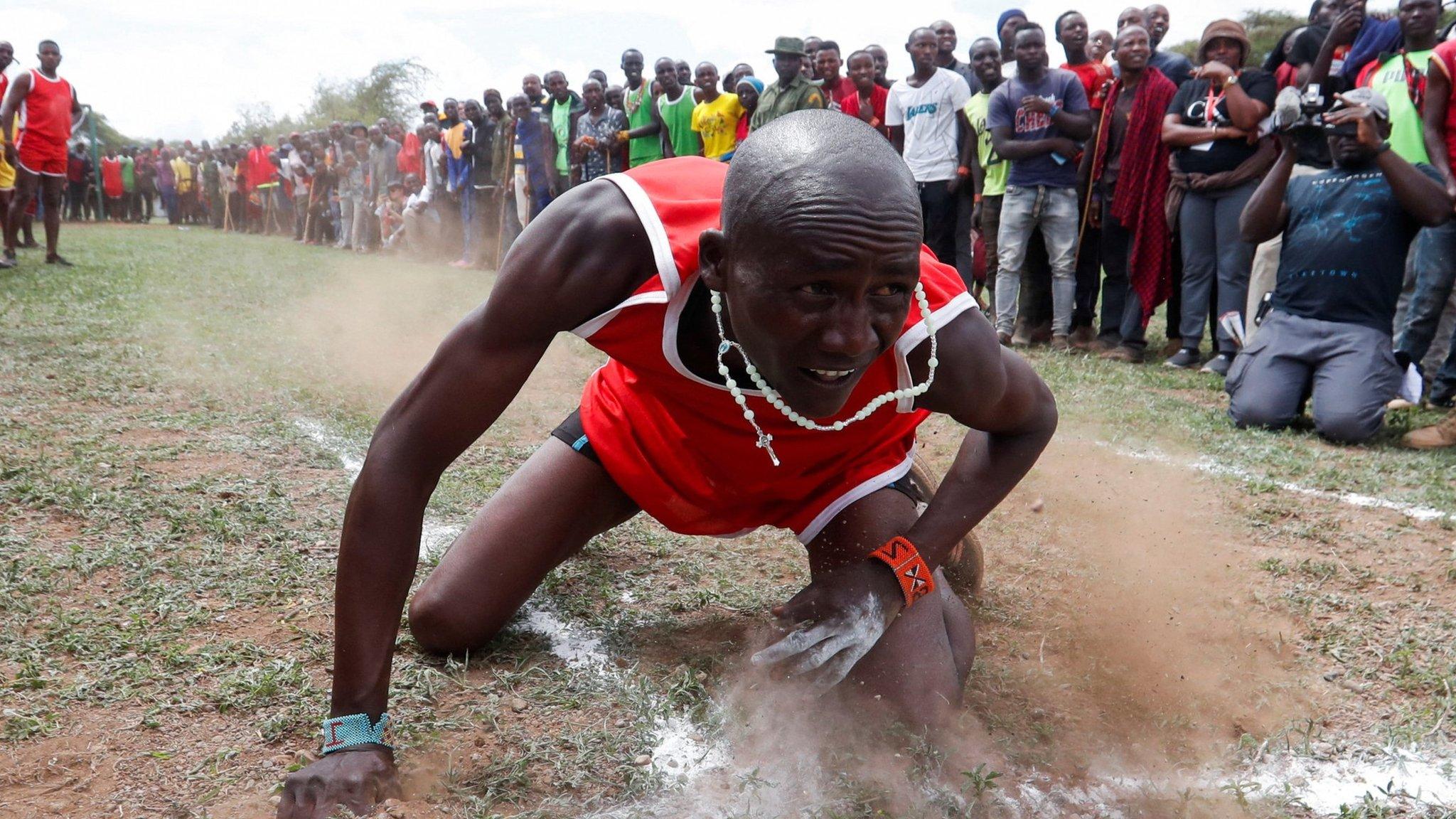Wild lion Loonkiito, 'one of the world's oldest', killed in Kenya
- Published

At 19, Loonkiito had a longer life than most wild lions
A wild male lion believed to be one of the world's oldest has died after being speared by herders, authorities in Kenya have said.
Loonkiito, who was 19, died in Olkelunyiet village on Wednesday night after preying on livestock.
The village borders Amboseli National Park - in southern Kenya.
Conservation group Lion Guardians said he was "the oldest male lion in our ecosystem and possibly in Africa". Most lions live to around 13 in the wild.
Almost all lions live in Africa with a small population in India, according to the World Wide Fund for Nature, external.
Kenya Wildlife Service (KWS) spokesperson Paul Jinaro told the BBC the lion was old and frail and wandered into the village from the park in search of food.
Mr Jinaro could not confirm if he was the oldest lion in the country but noted he was "very old".
The Maasai-operated Lion Guardians group works to conserve the lion population in Amboseli National Park, and said the end of a drought was "habitually marked by an uptick in human-lion conflict" as "wild prey recover and become more difficult to hunt".
"In desperation, lions often turn to take livestock," it said.
It added the killing of Loonkiito was a "tough situation for both sides, the people and the lion", and eulogised him as "a symbol of resilience and coexistence".
Paula Kahumbu, a wildlife conservationist and chief executive officer of WildlifeDirect, said she was pained by the killing of the lion and called for measures to protect wildlife in the country.
"This is the breaking point for human-wildlife conflict and we need to do more as a country to preserve lions, which are facing extinction," Ms Kahumbu told the BBC.
The average lifespan of a lion is about 13 years in the wild, although they can live much longer in captivity.
- Published14 March 2023

- Published10 December 2022
